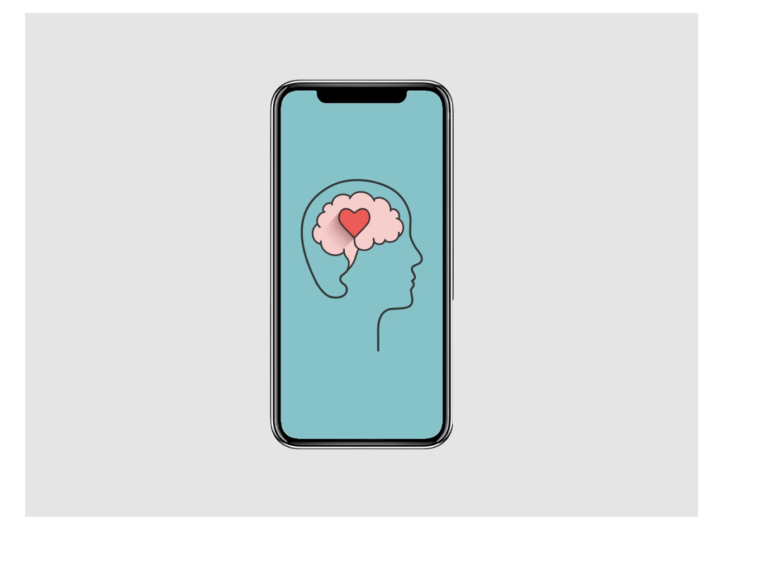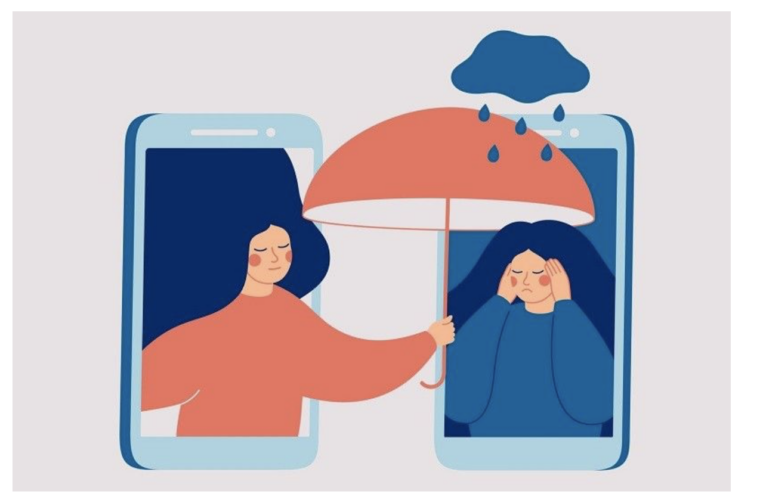Mental health apps — how relevant are they in 2023?
In 2023, mental health apps continue to be relevant. As our lives become more digital, more people are looking for ways to get health care online. This is especially true for mental health, as it is often associated with feelings of shame and stigma.
To begin with, it’s important to understand that such platforms allow access to cognitive behavioral therapy, meditation and other support methods at a time and place that is convenient for them. They also offer a personalized approach, analyzing responses to certain questions to provide the most appropriate support. Of course, systems cannot replace full therapy, and they are not appropriate for people with severe disorders. However, they can be a valuable tool for those who want to improve their health and get support in everyday life.
Thus, these projects continue to be relevant in 2023 and are likely to evolve further to meet needs and provide a more intelligent and personalized experience. In this article, we will give you a guide on how to develop a mental health app. Meanwhile, considering working with a healthcare mobile app development services represents a valuable and efficient approach to achieving your goal.

Types of mental health projects
There are numerous types of mental health apps available, which can help individuals manage their mental health in various ways. Some of the common types of mental health apps are:
- Meditation and mindfulness apps: These apps provide guided meditation and mindfulness exercises to help individuals reduce stress and anxiety.
- Mood tracking apps: These apps allow users to track their moods, identify patterns, and monitor their mental health over time.
- Therapy apps: These apps provide online therapy services and connect users with licensed therapists via video, phone, or text chat.
- Journaling apps: These apps provide prompts for daily journaling, helping individuals express their thoughts and feelings, and track their progress.
- Self-help apps: These apps provide information and tools for managing mental health issues, such as stress reduction techniques or coping skills for anxiety.
- Sleep apps: These apps help individuals improve their sleep quality by providing sleep tracking, guided meditations, and relaxing sounds.
- Relaxation and stress relief apps: These apps provide tools for relaxation and stress relief, such as breathing exercises, guided imagery, and progressive muscle relaxation.
- Fitness and nutrition apps: These apps provide guidance and tracking for physical health, which can also have a positive impact on mental health.
It is essential to note that mental health apps should not replace professional therapy, and individuals experiencing severe mental health issues should always seek the help of a licensed mental health professional.
Examples to consider before developing a mental health app
There are many mental health apps that perform different functions. Here are some examples:
- Headspace: meditation and Mindfulness, which offers breathing and meditation exercises that can help manage your stress and anxiety.
- Calm: meditation and Sleep, which offers meditation exercises and sound tracks that can help improve your sleep quality and reduce anxiety.
- BetterHelp: online therapy that allows you to get therapeutic support through video chat and messaging.
- Moodfit: mood tracking, which allows you to record your emotional states and get advice on managing your emotions.
- Pacifica: anxiety and stress management, which offers meditation exercises, mood tracking, and tools for managing panic attacks.
- Talkspace: online therapy that allows you to connect with licensed therapists via video chat and messaging.
- Happify: helps you improve your condition through mindfulness exercises, gamification.
These are just a few examples that are available on the market. Each has its own unique features and functions, so it is important to choose the product that best fits your needs and goals.
Necessary features and functionality of a mental health app
Your project should provide the ability to assess your condition and track it over time. Some of the other required features are:
- Tracking mood and habits, anxiety levels, stress levels, and other emotional states. This can help understand how their moods affect behavior and health.
- Meditation and mindfulness exercises, deep breathing and other mindfulness exercises to help manage stress and anxiety.
- Advice and tips for improvement, including stress and anxiety management strategies, healthy living, and more.
- Opportunities to get therapeutic support through online therapy with licensed professionals.
- Communities or groups where you can share experiences and get support from each other.
- Ability to adapt to specific needs and offer individualized recommendations and advice based on data analysis.
- Notifications and reminders to help keep track of your condition and exercise.
Overall, functionality can vary depending on specific needs and goals.
How to develop a mental health app — process
The creation process should start with defining your goals — why and for whom you are creating your project. This can be a variety of functions such as health assessment, and tracking, mood tracking, meditation exercises, etc. Defining your goals will help create a concept and define functionality. Next steps:
- Existing apps should be studied, their strengths and weaknesses identified, and what features and functionality could be useful for .
- After defining goals and conducting a market analysis, a design should be developed. The design should be simple, intuitive, and user-friendly. It is important to make sure that the design is suitable for the target audience and matches the brand.
- Functionality needs to be developed according to the objectives. It is important to make sure that the functionality meets the needs of the target audience.
- It is necessary to test the product on the target audience.
- Release.
- Support and updates.

Why develop a mental health app as your startup?
In light of the growing popularity and importance of mental health, this market continues to grow. This could present an attractive opportunity for a startup. There are several other reasons it might be a good idea:
- Some projects offer subscription opportunities, and others may generate revenue from advertising. This can present a high monetization potential.
- Opportunity to improve people’s lives: It can give a startup a sense of satisfaction that its product is helping to improve people’s lives.
- Technology can help, including using artificial intelligence, machine learning, and data analytics.
- Innovative market: The market is relatively new and innovative. It can present an opportunity to create a product that is the first of its kind and gives it a competitive advantage.
Why develop a mental health app? This could be a good idea for a startup, providing opportunities to grow, monetize and create a product that can help improve people’s lives.
